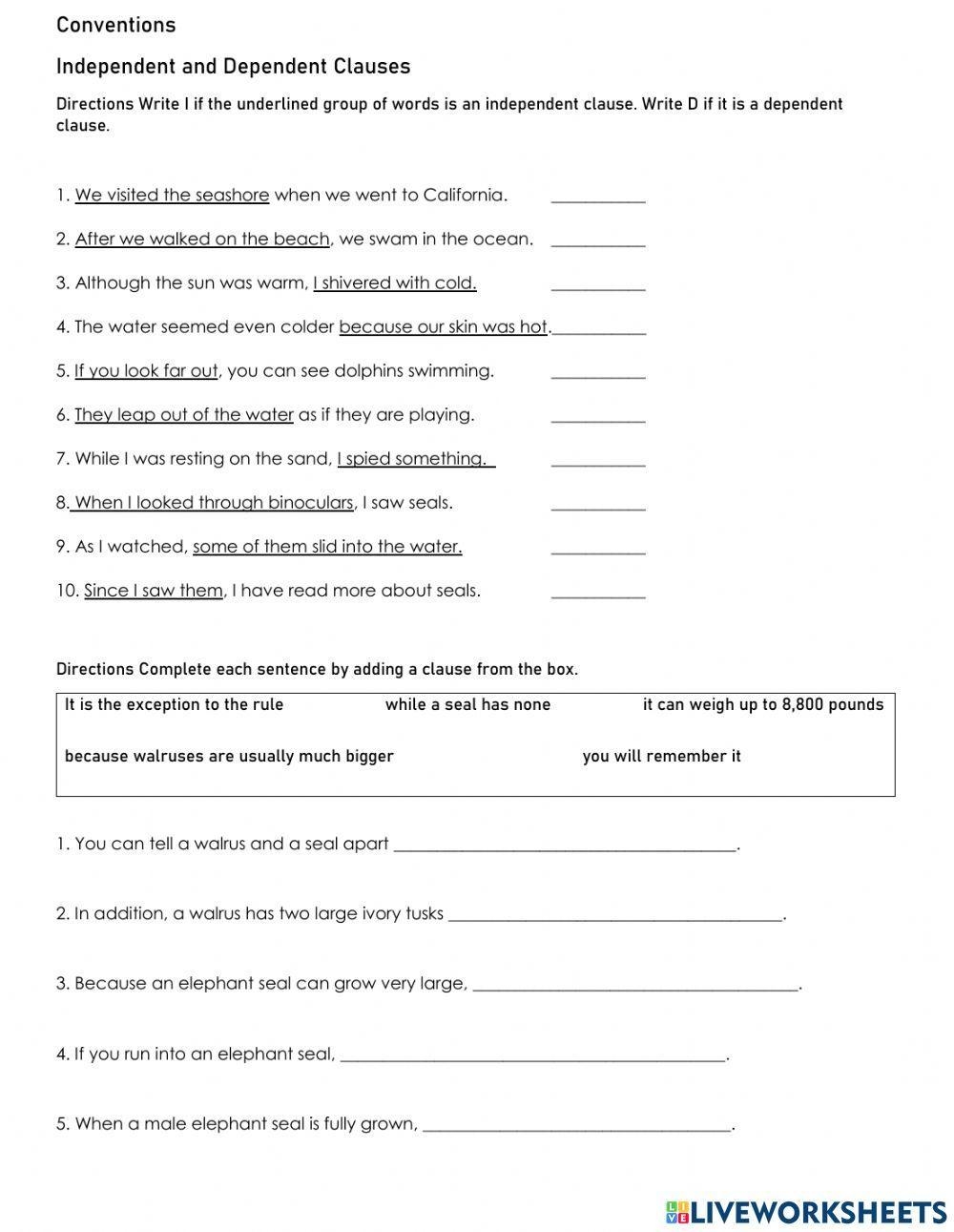An independent clause is a group of words that contains a subject and a verb and expresses a complete thought. It can stand alone as a sentence. On the other hand, a dependent clause also has a subject and a verb but does not express a complete thought. It needs to be attached to an independent clause to form a complete sentence. Understanding the difference between these two types of clauses is essential for constructing clear and effective sentences.
Below is a worksheet to help you practice identifying independent and dependent clauses:
- Identify whether each group of words is an independent clause or a dependent clause:
- After the rain stopped
- She went for a walk in the park
- Although he was tired
- I will meet you at the cafe
- When the bell rang
- Combine the independent and dependent clauses to form complete sentences:
- After the rain stopped, she went for a walk in the park.
- Although he was tired, I will meet you at the cafe.
- When the bell rang, she answered the phone.
By practicing with this worksheet, you can improve your understanding of how independent and dependent clauses work together to create meaningful sentences. Remember that independent clauses can stand alone, while dependent clauses rely on independent clauses for context and meaning.
As you continue to work with independent and dependent clauses, pay attention to how they are used in different types of writing. By mastering the use of these clauses, you can enhance the clarity and coherence of your writing.
Overall, understanding the distinction between independent and dependent clauses is crucial for effective communication. Practice with the worksheet provided to strengthen your skills and become a more confident writer.
